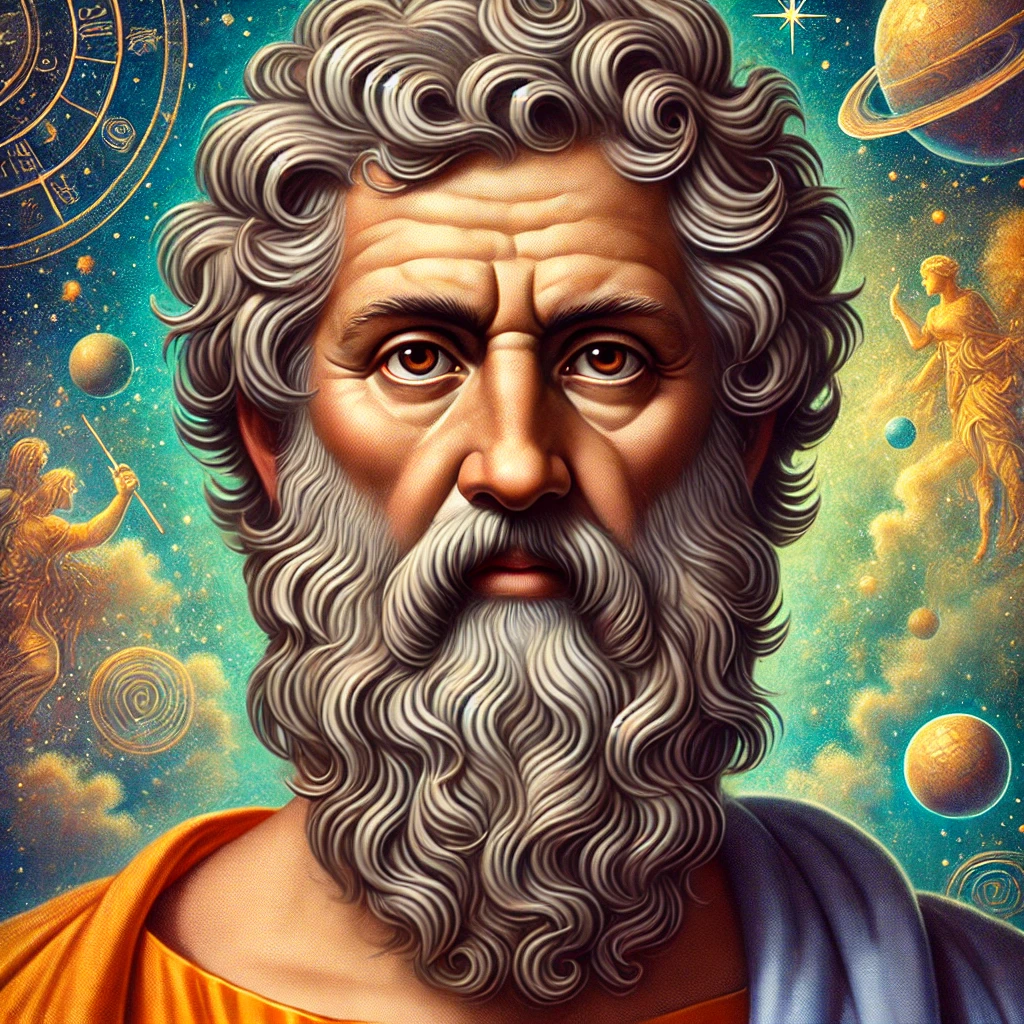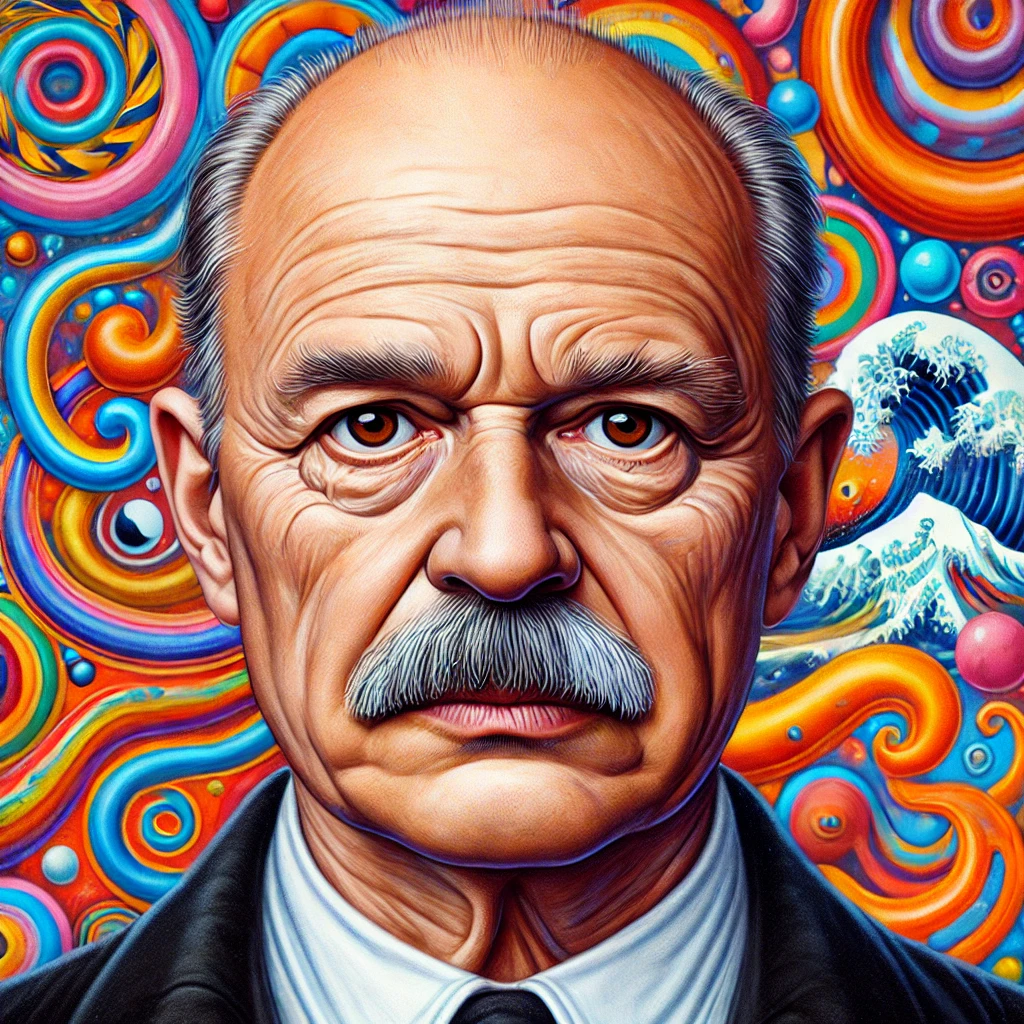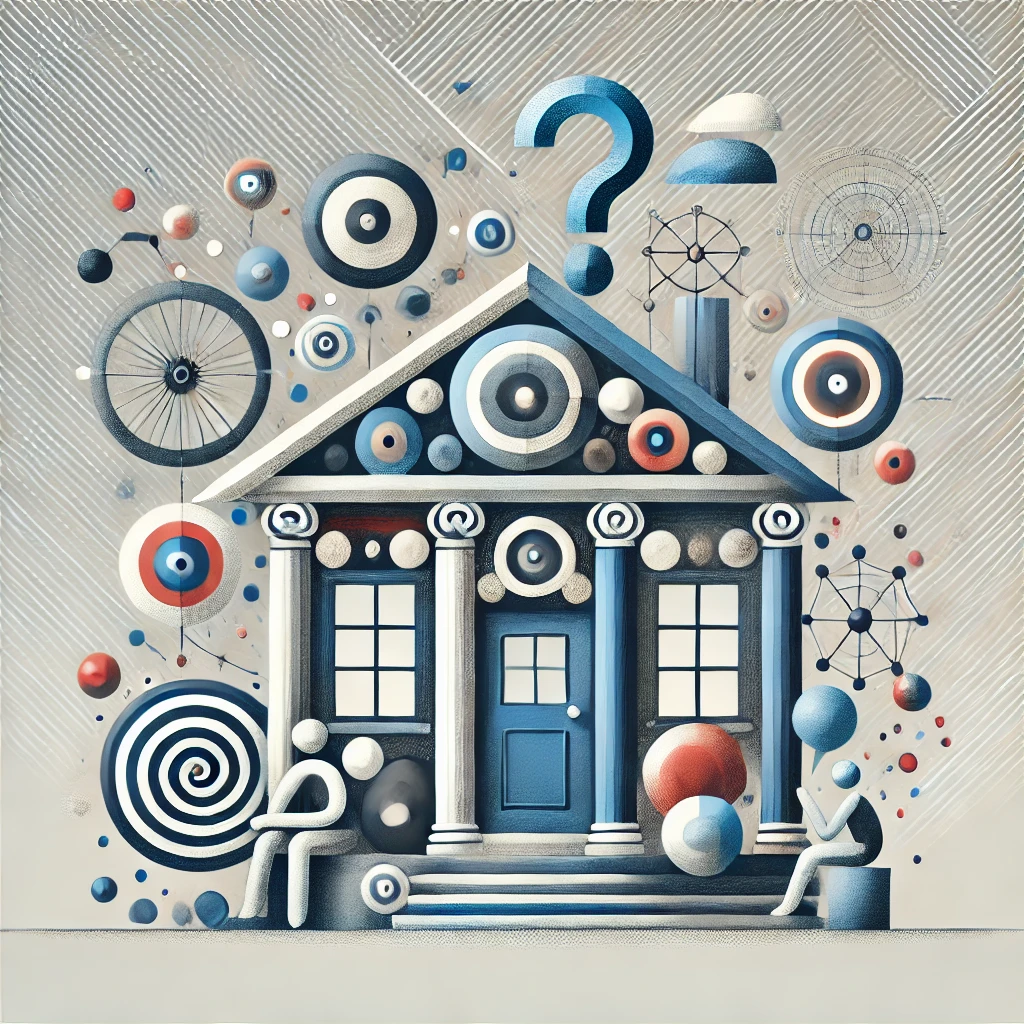Consensus vs Truth: Why Thinking for Yourself Matters
Truth Isn’t Decided by Popular Opinion
January 20, 2025

In today’s world, ideas spread quickly. If everyone around you agrees on something, it can feel like a fact. But just because a belief is popular doesn’t make it true. History and philosophy show us that what’s widely believed isn’t always reality. Truth stands apart from public opinion—it exists whether people believe it or not.
Truth doesn’t change just because a lot of people believe something. Philosophers like Plato believed that truth exists independently of human opinion, in what he called the realm of ideals—a perfect, unchanging reality beyond human perception. While our understanding of truth evolves as we discover more about the world, the truth itself remains constant. For instance, the Earth has always been round, even when most people believed it was flat. The shape of the Earth didn’t change—the way humans understood it did.
This distinction between what is believed and what is real is at the heart of the difference between consensus and truth. Consensus—what the majority of people agree on—is often shaped by culture, tradition, or even convenience. Truth, on the other hand, stands apart. It doesn’t need validation from popular opinion, and it doesn’t fade when people stop believing in it.
In everyday life, this means we have to be cautious about accepting popular beliefs at face value. Trends, cultural norms, and societal pressures can make ideas seem unquestionable, but as history shows, they’re often temporary. The question we should ask isn’t “Do most people believe this?” but “What evidence supports this, and does it hold up to scrutiny?”
Truth doesn’t always fit neatly into what we want to believe or what feels comfortable. But seeking it requires that we go beyond surface-level agreement and dig into the foundations of what we know.
Why People Follow the Crowd
Humans are naturally social creatures, and one of our deepest instincts is to belong. This desire for connection can make us adopt the beliefs of the group around us—whether or not they’re true. Psychologists call this phenomenon groupthink, where the need for harmony within a group leads people to suppress doubts or alternative viewpoints.
Philosophers like Friedrich Nietzsche warned against this tendency, describing it as herd mentality—the uncritical acceptance of collective beliefs. According to Nietzsche, following the crowd might feel safe and comforting, but it often leads to intellectual stagnation. People stop asking questions and instead rely on what “everyone knows.” This can make false ideas incredibly persistent, even when there’s overwhelming evidence against them.
Consider how this plays out in real life. A viral social media trend, for example, might claim a health hack is effective because “everyone is doing it.” People may try it without questioning whether it’s backed by science, simply because they trust the group. This is an example of how the comfort of agreement—feeling like you’re part of something bigger—can overshadow the pursuit of truth.
But why do we find it so hard to resist this pull? Research in psychology shows that standing apart from the group triggers fear and discomfort. Humans evolved to survive in communities, and being an outsider historically carried risks of isolation or danger. These deep-rooted instincts still influence us today, even though questioning the group no longer puts our lives at risk.
Resisting the urge to conform takes effort and courage. It requires us to step back and ask, “Why do I believe this? Is it because it’s true, or because it’s easy to go along with everyone else?” People like Galileo, Socrates, and Rosa Parks all challenged societal norms, facing immense pressure but ultimately helping to reshape our understanding of the world.
By recognising this tendency in ourselves, we can take steps to counteract it. This doesn’t mean rejecting popular ideas just for the sake of being different—it means examining them critically and being willing to stand apart when the evidence doesn’t align with the majority opinion. Independent thinking isn’t always comfortable, but it’s a necessary step toward finding deeper truths and making progress.
10 Times the Majority Believed the Wrong Thing
History offers plenty of examples of how dangerous it can be to confuse popular belief with truth. Here are ten moments when the majority got it wrong, and critical thinking saved the day:
1 The Earth as the Center of the Universe
For centuries, people believed the Earth was the center of the universe, with everything—stars, planets, even the Sun—revolving around it. This belief was endorsed by religious leaders and scientists alike. When Copernicus and Galileo challenged this idea, they were mocked and punished, even though their evidence proved them right.
2 The Humoral Theory of Medicine
For over a thousand years, doctors believed that the body’s health depended on balancing four fluids, or “humors”—blood, phlegm, black bile, and yellow bile. This belief led to harmful practices like bloodletting. It wasn’t until the discovery of germs in the 19th century that medicine shifted away from this outdated theory.
3 Spontaneous Generation
For centuries, people believed that life could appear out of non-living matter. For example, they thought maggots spontaneously emerged from rotting meat. Louis Pasteur proved this wrong through experiments that showed life comes from other life—not from nothing.
4 The Flat Earth Belief
Despite evidence from ancient scholars like Aristotle, many people believed for centuries that the Earth was flat. Explorers like Ferdinand Magellan proved otherwise by circumnavigating the globe, but this belief shows how strong popular misconceptions can be.
5 Bloodletting as a Cure-All
In the past, doctors used bloodletting to treat illnesses ranging from fevers to infections. Even George Washington was treated this way. Modern science later showed that this practice was often harmful rather than helpful, exposing the flaws in the medical consensus of the time.
6 The Ether Theory
In the 1800s, scientists believed space was filled with a substance called “ether,” which they thought allowed light to travel. This idea was eventually disproved by experiments like the Michelson-Morley experiment, leading to Einstein’s groundbreaking theory of relativity.
7 Racial Superiority and Eugenics
For much of the 19th and early 20th centuries, the pseudoscience of eugenics promoted the idea that some races were superior to others. Supported by governments and scientists, these beliefs justified terrible policies, including forced sterilizations. Advances in genetics later debunked these ideas, proving them baseless and harmful.
8 Miasma Theory of Disease
Before germ theory, most people believed diseases like cholera were caused by “bad air,” or miasmas. This belief shaped public health efforts for centuries until scientists like Louis Pasteur discovered microorganisms as the real culprits.
9 Continental Drift
When Alfred Wegener proposed that continents move, most scientists dismissed him. His idea of continental drift was considered ridiculous until decades later, when the theory of plate tectonics proved him right.
10 Lobotomies as a Treatment for Mental Illness
In the 20th century, lobotomies were widely accepted as a treatment for mental illness. Even though the practice won a Nobel Prize, it caused serious harm to patients. This is a reminder that medical consensus isn’t always reliable.
Why Questioning Matters
When a belief becomes widely accepted, questioning it can feel uncomfortable, even dangerous. People who challenge popular ideas often face ridicule, rejection, or worse. Yet, history shows us that breakthroughs happen because someone dared to ask difficult questions and explore beyond the boundaries of accepted knowledge.
Take Socrates, the ancient Greek philosopher who lived in a society that valued tradition and conformity. Socrates famously said, “The unexamined life is not worth living,” and spent his days asking uncomfortable questions about morality, justice, and truth. His method of questioning—the Socratic Method—forced people to confront contradictions in their beliefs and uncover deeper truths. Yet, his constant challenges to the status quo angered powerful leaders, and he was sentenced to death for “corrupting the youth.” His story is a reminder that progress often requires courage, even in the face of resistance.
History also shows that questioning consensus often sparks innovation. Consider Thomas Kuhn’s concept of scientific revolutions. In his book The Structure of Scientific Revolutions, Kuhn argued that science doesn’t progress in a straight line. Instead, it shifts through paradigm changes, where accepted ideas are overturned by bold new theories. For example, Einstein’s theory of relativity didn’t just add to Newton’s ideas about physics—it replaced them. This shift happened because Einstein dared to question the limits of the old paradigm and propose something radically new.
Questioning isn’t just for philosophers and scientists—it’s a skill we can all practice. When you encounter a widely held belief, ask:
- What evidence supports this idea?
- Are there contradictions or gaps in the explanation?
- Who benefits from this belief, and could that influence its popularity?
By examining beliefs critically, we strengthen our understanding of the world. Dissent isn’t about being contrarian for its own sake—it’s about clearing the way for truth to emerge.
Truth Is a Journey
Philosophers like Søren Kierkegaard believed that truth is not just about knowing facts—it’s about a personal quest for meaning. Kierkegaard argued that truth must resonate with the individual, connecting deeply with their life and experiences. He called this “subjective truth,” emphasizing that true understanding isn’t just intellectual—it’s emotional and personal.
This doesn’t mean that truth is relative or that everyone has their own version of reality. Instead, it’s a call to take ownership of your beliefs. Kierkegaard believed that accepting a truth passively—because it’s what everyone else believes—isn’t enough. True understanding comes from wrestling with ideas, questioning them, and deciding for yourself what aligns with your values and experiences.
Think of truth as a journey rather than a destination. Along the way, you may encounter ideas that challenge what you once believed. You might have to unlearn habits of thought or let go of comfortable assumptions. This process can feel unsettling, but it’s also deeply rewarding.
Consider how this applies in daily life. When faced with an idea, ask yourself:
- Does this belief align with my values?
- Have I explored the evidence, or am I accepting it because it’s popular?
- How does this idea fit into my personal experience?
Take the example of social media trends. Viral ideas often gain popularity not because they’re true, but because they’re entertaining, shocking, or easy to understand. To find truth in these moments, you have to pause and dig deeper. The journey might involve researching multiple perspectives, reading studies, or talking to people with different viewpoints.
The personal nature of truth is also why it’s important to remain open to change. No matter how deeply you believe something today, new evidence or experiences might reshape your understanding tomorrow. This humility—the willingness to keep learning—is what makes the search for truth a lifelong process.
Kierkegaard’s philosophy reminds us that truth isn’t just about what we know but about how we live. Seeking truth requires effort, reflection, and sometimes stepping into discomfort. But by embracing the journey, we discover a truth that’s not only real but meaningful—a truth we can live by.
Think Beyond the Crowd
It’s easy to confuse popularity with truth, but history shows us how dangerous that can be. What everyone believes today might turn out to be false tomorrow. That’s why it’s so important to question popular beliefs and seek evidence for yourself.
The truth isn’t decided by how many people believe in it. It’s revealed through curiosity, courage, and critical thinking. By stepping outside the crowd, you join the ranks of those who’ve uncovered the deeper truths that move humanity forward.
So the next time you hear something that “everyone knows,” stop and ask: Is it really true? The answer might surprise you—and lead you to something far greater than the comfort of agreement.







